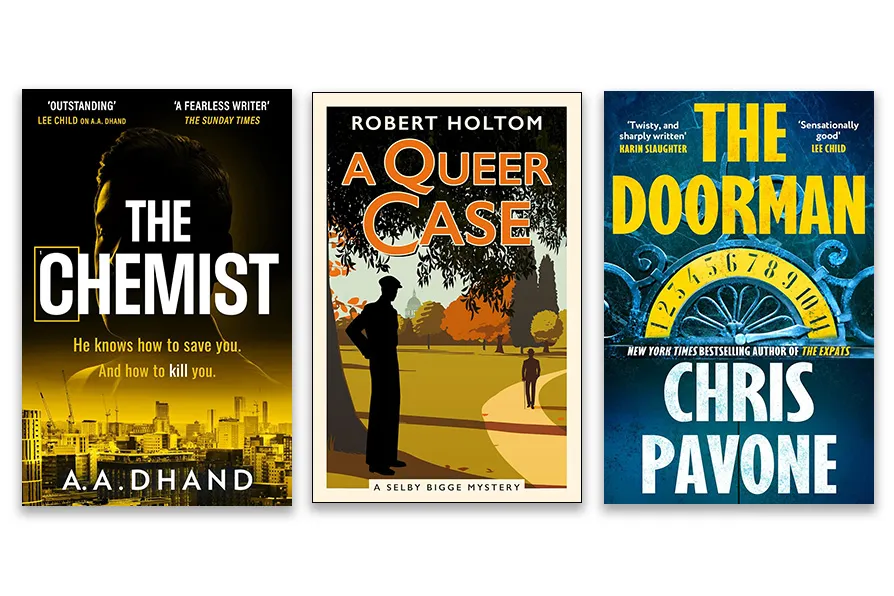A deeply pleasing festive crime wave
A corrupted chemist, a Hampstead homosexual and finely observed class-conflict at The Bohemia


IDRIS owns a pharmacy in Headingley, in The Chemist by AA Dhand (HQ, £16.99). But government cuts mean he’s constantly on the verge of bankruptcy. All that’s keeping him going is his monopoly access to a nearby estate where he delivers clean needles and prescription drugs to a large population of heroin addicts. Keeping that contract means not falling out with the gangsters who run The Mews.
When doing a favour for an ex leaves him on the wrong side of the law and the criminals, he’s forced into making terrible decisions. However, once he’s crossed the line he begins to realise that there’s a certain satisfaction in using his professional skills to solve impossible problems. You could say it’s a bit addictive.
Idris is one of the unlikeliest and best anti-heroes in years.
A Queer Case by Robert Holtom (Titan, £9.99) introduces Selby Bigge, who has a dull job in 1920s London and lives alone in a dull bedsit. His evenings are spent on Hampstead Heath, looking for brief company, terrified that he might ”accidentally proposition a normal.” He dreams of a life in which he might hold hands with a lover in public without the danger of arrest, perhaps even a life in which that lover might become something more permanent.
A chance reunion with an old college acquaintance makes him think he might have found his man, but then a murder occurs at the mansion home of his friend’s father. To save the object of his desire, Selby must turn amateur sleuth — without himself risking exposure and ruin.
An irresistible central character and an unusual historical setting in high and low society make this whodunnit something special.
The cops in New York have gunned down another black man in The Doorman by Chris Pavone (Head of Zeus, £18.99), and the protesters and counter-protesters are gathering. Inside the Bohemia, the city’s most famous apartment building, the residents prepare themselves for trouble. Out on the pavement, their door staff, mostly black or Hispanic, have their own, rather more immediate concerns. And all of them are looking in the wrong direction: threats can come from within as well as without.
The rich are portrayed here as divided into two tribes. There’s the deranged conservatives, who believe that straight white people are the only oppressed minority left and that asking the wealthy to pay tax would be only one step short of herding them into death camps. And there’s the self-appointed elite of hideous liberals who devote their leisured lives to policing language, inventing ever more ways to be offended, and above all cancelling each other for crimes against fashionable thought.
This is that rarity, a US novel which understands class conflict as not merely a difference in outlook or social mores but rooted in ownership, inheritance and control of capital. It’s beautifully written, a state-of the-nation novel that is also about recognisably real individual characters and which becomes, in its second act, a nerve-shredding thriller.










